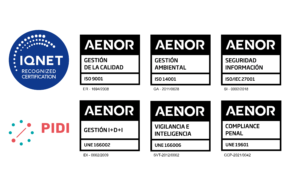The European project ZeroW (Systemic Innovations Towards a Zero Food Waste Supply Chain) has officially started, after holding its kick-off meeting on January 24 and 25 online, with the aim of contributing to reducing food waste through the application of systemic innovations in living labs, i.e., experimentation environments to co-create innovation.
CTA (Technological Corporation of Andalusia) will lead the Andalusian living lab. The Andalusian Institute for Agricultural, Fisheries, Food and Ecological Production Research and Training (IFAPA), dependent on the Regional Ministry of Agriculture, Livestock, Fisheries and Sustainable Development of the Andalusian Government, Grupo La Caña and the company Multiscan Technologies also participate in the living lab.
The project will create 9 living labs in Europe and develop assessment activities to ensure the environmental and economic sustainability of solutions in the long-term, as well as support the transition to a zero food waste system.
ZeroW is a project funded by the Horizon 2020 programme through the call dedicated to the European Green Deal. It has a budget of €12M and 46 partners from 17 European countries participate.
Open innovation to reduce food waste
Living labs are open and user-centric innovation ecosystems that embed research and innovation processes in real-life environments and communities. The ZeroW project has a multidisciplinary and demonstrative approach, made up of 9 living labs that focus on different stages of the value chain and involve farmers, food producers, transforming industries, retailers, research centres, Digital Innovation Hubs (DIHs) and clusters, among others.
Each living lab will address specific system blockages and propose data-driven solutions from a systemic innovation approach to ensure future sustainability and scale-up of the innovations developed.
The objective of the Andalusian living lab will be to assess the shelf life and compliance with retail requirements for fruit and vegetables, at an early stage, through non-destructive analysis and multi-attribute classification techniques. It is intended to reduce food waste by the producer and the retailer.
In addition, it will also seek to ensure quality products with a known shelf-life at the retailer side, providing market strategies for ‘ugly’ fruits and vegetables and optimizing logistics management.



